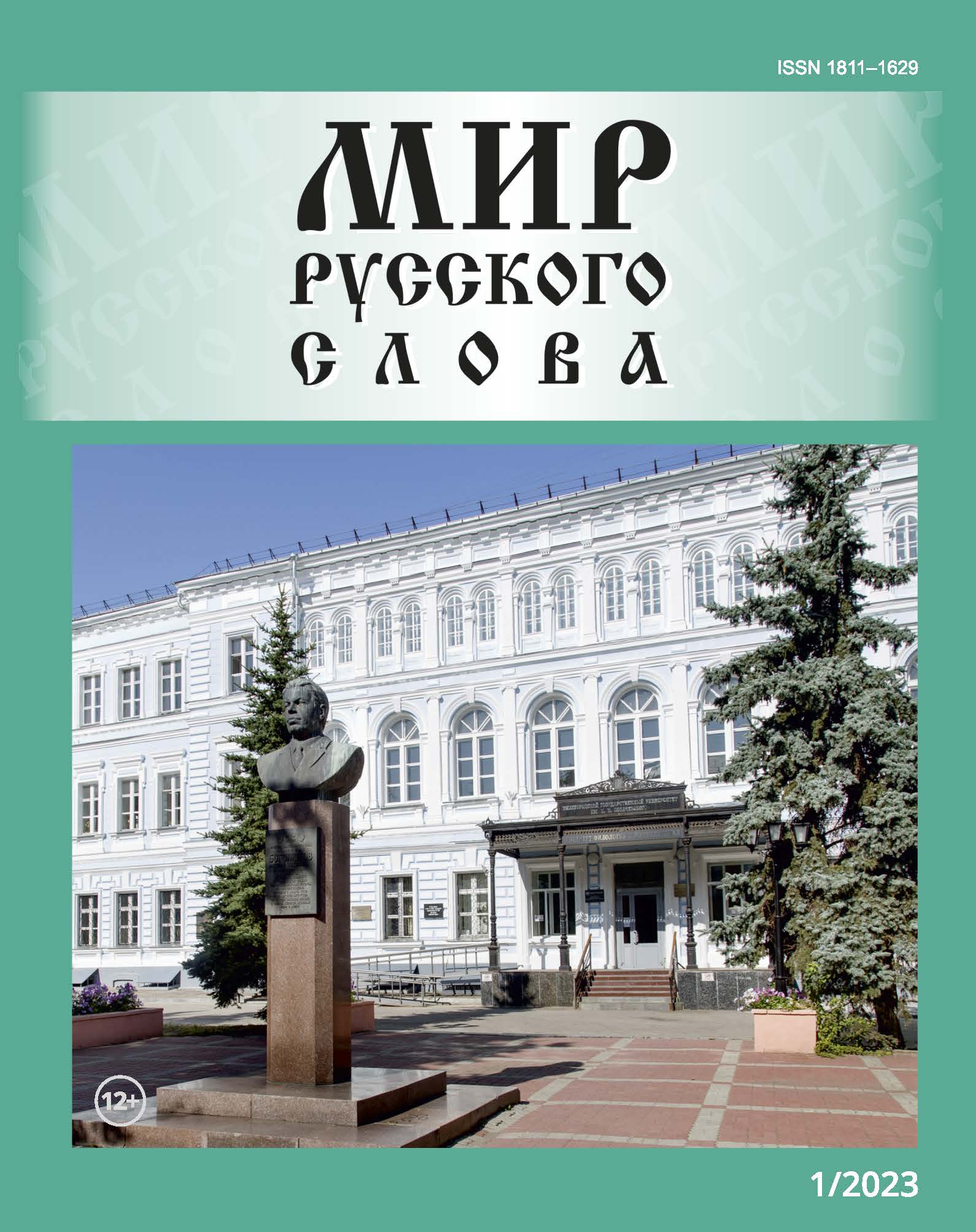Speech accuracy and grammatical category of gender in modern Russian
DOI:
https://doi.org/10.21638/spbu30.2023.103Abstract
The author argues that recently research attention has been attracted by the various structural feminitives that have become more active in the Russian language in general and in the media space in particular. The purpose of the article is to describe feminitives taking into consideration generic and gender correlations in the aspect of the textual category of accuracy. This purpose has determined the choice of adequate research methods, which used methods of contextual and linguopragmatic analysis. The article presents an expansive view of the problem of feminitives — in the context of the functioning of the grammatical gender category as a whole. Observations are made on the possibility of the gender category in general and temporary formations in particular to contribute to the formation of object, conceptual and emotional and aesthetic (elocutionary) accuracy. The article is based on the 2022 media texts. The correlations relating to gender significant for feminitives has been detected, which include an unmarked element as neutral one, implementing conceptual accuracy. The choice of such a unit is determined by its regularity and conciseness, and the conceptual accuracy implemented by it ensures a natural adequacy in the perception of the text by any addressee. The marked member of the opposition, in particular the feminitive in the direct meaning, forms and implements the object accuracy. Another marked member of the opposition, the feminitive in the direct meaning, represents emotional and expressive (eloquent) accuracy as the category of the highest level. Thus, the privative grammatical opposition relating to gender can be considered as binomial with the following variants of models: unmarked masculine gender — marked feminine gender (feminitive in the direct meaning); unmarked masculine gender — marked feminine gender (feminitive in the figurative meaning). It is also possible to analyse grammatical opposition relating to gender as a three-element one: unmarked masculine gender — marked feminine gender (feminitive in the direct meaning) — marked feminine (feminitive in the figurative meaning), taking into consideration contextual conditionality and the implementation of the accuracy category.
Keywords:
feminitives, features of good speech, conceptual accuracy, eloquent accuracy, grammatical category of gender, privative grammatical opposition
Downloads
Downloads
Published
How to Cite
Issue
Section
License
Articles of "The World of Russian Word" are open access distributed under the terms of the License Agreement with Saint Petersburg State University, which permits to the authors unrestricted distribution and self-archiving free of charge.




